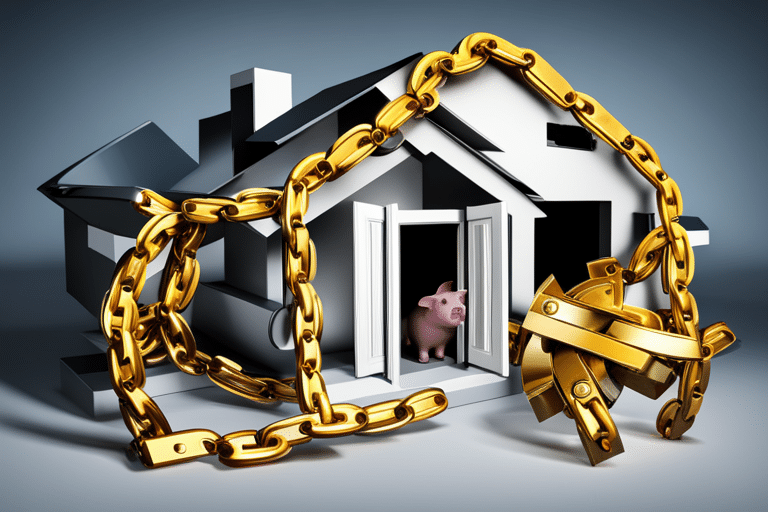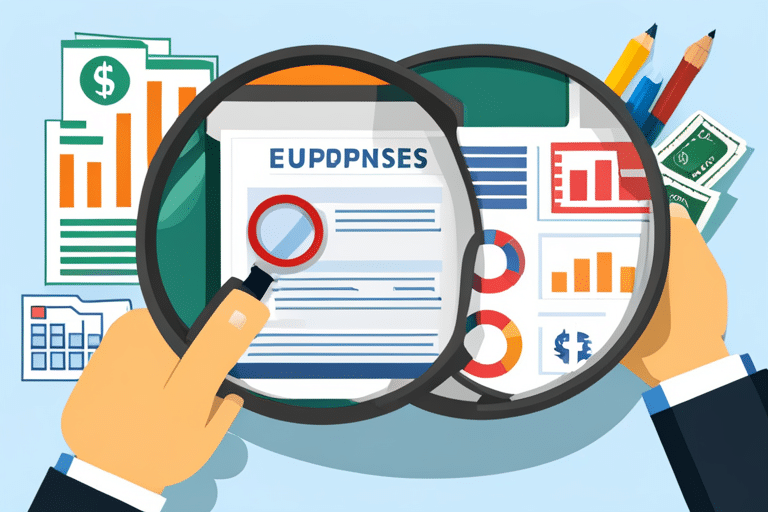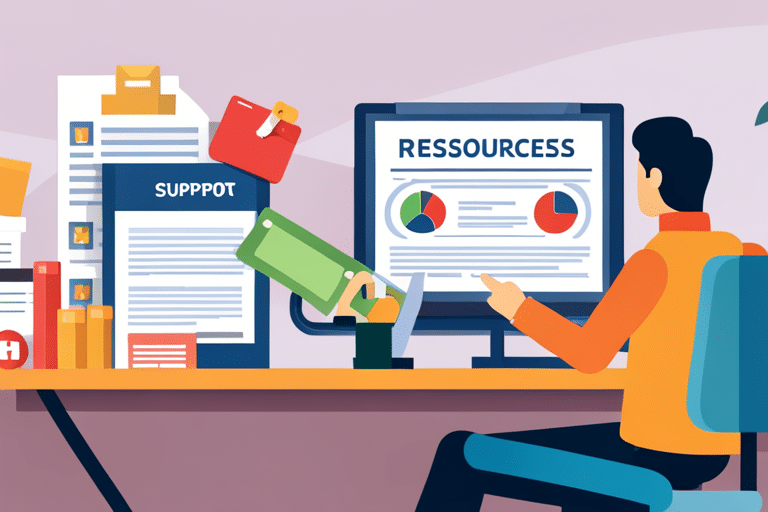Are you tired of feeling trapped by your bad credit score? Ready to take control of your financial future and leave those worries behind?
Well, look no further! In this article, we’re going to show you how to recover from a bad credit score using simple tips and strategies. By following our guidance and implementing these techniques, you’ll be well on your way to achieving financial mastery.
So let’s dive in and start turning things around!
Key Takeaways
- A bad credit score can limit opportunities for loans and mortgages.
- Analyze income, expenses, and debts to assess your financial situation.
- Track expenses to gain clarity on where money is going.
- Prioritize debts based on interest rates and payment terms.
Understanding the Impact of a Bad Credit Score

Understanding the impact of a bad credit score can help you make informed decisions about your financial future. So, picture this: you’re walking through a magical forest, and you stumble upon a group of mischievous credit bureaus. These little creatures are responsible for keeping track of your credit history and determining your credit score. They hold the key to your financial kingdom! But beware, if you have a bad credit score, these critters will cast spells on your life that can be quite troublesome.
You see, having a bad credit score can limit your opportunities in many ways. It’s like carrying around an invisible anchor that weighs you down whenever you try to apply for loans or mortgages. Lenders might hesitate to give you money because they’ll see you as a riskier borrower. This means higher interest rates and fewer chances of getting approved for those dreamy purchases.
But fear not! There are ways to improve your situation and lift that anchor off your back. One powerful spell is called ‘improving credit utilization.’ This involves using less than 30% of your available credit at any given time. The more magic distance between what you owe and what’s available, the better it looks in the eyes of the bureaus.
Now that we’ve unraveled the mystery behind understanding credit bureaus and improving credit utilization, let’s move on to assessing your current financial situation with even more enchanting tips! Trust me; by learning about these magical concepts, you’ll be well on your way to transforming that bad credit score into something truly remarkable!
As we delve into assessing your current financial situation, keep in mind how understanding the impact of a bad credit score has set us up for success in our journey towards recovery.
Assessing Your Current Financial Situation

Assess your current financial situation by analyzing your income, expenses, and debts. It’s time to take a deep dive into the mysterious world of money, my friend!
Picture yourself as a financial detective, armed with a magnifying glass and a Sherlock Holmes hat (optional). Your mission? To uncover the secrets of your financial health.
First things first, let’s talk about income. How much moolah is flowing into your bank account each month? Is it enough to cover all your expenses and still have some left for that fancy coffee you love so much? Take a moment to reflect on this, and maybe even do a happy dance if you’re earning more than you thought!
Next up: expenses. Ah yes, those sneaky little money munchers that seem to disappear faster than socks in a dryer. Grab a notebook or open up that fancy spreadsheet app on your phone (you know you have one) and jot down every expense that pops into your head. From rent to groceries to Netflix subscriptions (yes, we see you binge-watching), leave no stone unturned!
Now let’s tackle the debt monster lurking in the shadows. Do you have any loans or credit card balances hanging over your head like an overdue library book? Write them down too and give them an evil glare while you’re at it.
Once you’ve gathered all this information, take some time to reflect on what it means for your financial future. Are there areas where you can cut back on spending? Can you set aside some money each month towards paying off debt or saving for future goals?
Creating a Budget and Sticking to It

So, you’ve come to the realization that your spending habits are a bit out of control and it’s time to get serious about managing your money. Well, fear not!
In this discussion, we’ll dive into the importance of tracking your expenses (yes, even those impulse buys), cutting out unnecessary expenses (farewell, daily latte), and when it might be wise to seek professional financial advice (because sometimes we all need a little extra help).
Importance of Tracking Expenses
To improve your credit score, start by keeping track of your expenses. Think of it as embarking on a magical journey through the land of financial stability. Imagine yourself as a fearless explorer, armed with a trusty budgeting sword and shield. With every expense you encounter, mark it down in your enchanted ledger. This simple act will bring clarity to your financial world and unlock the secrets to long-term financial success.
Tracking expenses is like having a treasure map that leads you straight to your goals. It allows you to see where your money is going and helps you make informed decisions about what truly matters to you. Do you want that shiny new gadget or would you rather save up for an epic adventure? By knowing where every gold coin goes, you can prioritize and allocate resources wisely.
Cutting Unnecessary Expenses
When it comes to cutting unnecessary expenses, take a close look at your monthly subscriptions and consider which ones you could live without. Are you really using that streaming service with all those shows you never have time to watch? And do you really need that magazine subscription when you could just flip through the pages at the dentist’s office?
It’s time to get real and start reducing spending on non-essential items. We all love a little luxury, but sometimes it’s worth sacrificing that daily latte or weekly manicure in order to get our finances back on track.
Seeking Professional Financial Advice
If you’re feeling overwhelmed with your finances, it’s worth considering seeking professional financial advice. Think of it as having a personal guide through the treacherous maze of credit repair and financial counseling.
Here are two reasons why you should embrace this idea:
-
Expertise: Financial advisors have spent years honing their skills in the realm of money management. They possess a wealth of knowledge that can help you navigate the rocky terrain of credit repair and get back on track.
-
Insider Tips: These wizards can provide you with insider tips and tricks to boost your credit score, like casting spells to remove errors from your credit report or conjuring up strategies to negotiate lower interest rates.
Paying Off Debts and Managing Credit Card Usage

Make sure you’re consistently making payments and keeping your credit card balances low to improve your credit score. You see, my dear friend, when it comes to paying off debts and managing your credit card usage, there are a few tricks up your sleeve that can work wonders for your financial journey.
Firstly, let’s talk about debt consolidation. Picture this: all of those pesky little debts bundled up into one big happy family. Debt consolidation allows you to combine multiple debts into a single loan with a lower interest rate. It’s like getting all the benefits of having just one bill to pay without any of the drama!
Next up is credit utilization. Imagine your credit limit as a delicious pie and each purchase you make as a scrumptious slice. The key here is not to devour the entire pie in one sitting! Instead, aim to keep your credit card balances low by only using around 30% or less of your available credit. This way, lenders will see that you have self-control and aren’t overindulging in the world of plastic.
Now, my friend, don’t be disheartened if it takes time for these strategies to bear fruit. Rome wasn’t built in a day, after all! Just remember that consistency is key – keep making those payments on time and watch as your credit score gradually climbs its way back up the ladder.
Building a Positive Credit History

Hey there, credit card aficionado! Let’s dive into the wonderful world of building a positive credit history.
We’ll talk about how to use your credit cards wisely, why your payment history is as important as a goldfish’s memory, and the magical art of diversifying your credit sources.
Credit Card Usage
When using credit cards, it’s important to keep your balances low to improve your credit score. Imagine you’re on a magical journey through the land of Creditopia, where every swipe of your card brings you closer to financial freedom and mastery. Here are some whimsical tips and tricks to help you navigate this enchanting realm:
- Avoiding Credit Card Debt
- Resist the temptation of unnecessary purchases, like that sparkly unicorn onesie.
-
Pay off your balance in full each month; it’s like casting a spell against debt.
-
Taming Credit Card Interest Rates
- Seek out cards with low interest rates, as they are the golden keys to keeping more gold in your pocket.
- If you find yourself bewitched by high interest rates, consider transferring your balance to a card with a lower rate.
Payment History Importance
Paying your credit card bills on time is crucial for building a positive payment history. It’s like feeding a hungry squirrel – you want to keep it happy and well-fed. By staying on top of your payments, you’re showing lenders that you’re responsible and trustworthy. And who doesn’t want to be seen as a reliable squirrel? To help you understand the importance of timely payments, let’s take a look at this whimsical table:
| Positive Payment History | Negative Payment History |
|---|---|
| Builds creditworthiness | Hurts creditworthiness |
| Attracts better loan terms | Raises interest rates |
| Allows access to credit repair services | Limits access to credit repair services |
As you can see, improving your creditworthiness opens doors to better opportunities, while neglecting your payment history can have some not-so-furry consequences. So, let’s continue our journey towards financial mastery by exploring the next step: diversifying credit sources!
Diversifying Credit Sources
Diversifying your credit sources can do wonders for your financial situation, my friend! Not only does it improve your credit repair journey, but it also opens up a whole new world of borrowing options. It’s like going from having just one flavor of ice cream to an entire buffet of creamy delights!
So, let’s dive into the delightful benefits of diversifying your credit sources:
-
Flexibility: When you have multiple credit accounts, you’re not limited to a single option when you need some extra funds. You have the power to choose the best terms and rates that suit your needs.
-
Credit Utilization: By spreading out your balances across different accounts, you can lower your overall credit utilization ratio. This magical number plays a significant role in determining your creditworthiness and boosting that all-important score.
Seeking Professional Help and Resources

If you’re struggling with a bad credit score, one option you might consider is seeking professional help and utilizing available resources. It’s like having your own personal credit superhero swoop in to save the day!
Credit counseling can be a great starting point for getting back on track. Think of it as having a wise and knowledgeable friend who guides you through the maze of credit scores and financial decisions. They’ll assess your current situation, offer advice on managing debt, and create a tailored plan to improve your credit.
And if you find yourself drowning in multiple debts from different sources, debt consolidation could be your knight in shining armor. This magical technique combines all your debts into one manageable payment, giving you the power to slay those pesky balances once and for all! No more juggling due dates or feeling overwhelmed by endless bills. Debt consolidation simplifies everything into a single monthly payment that works for you.
But wait, there’s more! Alongside credit counseling and debt consolidation, there are countless other resources available to help restore harmony between you and your credit score. From online tools that track your progress to informative articles that unlock the secrets of financial success – it’s like having an entire library dedicated solely to improving your creditworthiness!
Frequently Asked Questions
Can I Completely Erase My Bad Credit Score and Start Fresh?
Sure, you can’t completely erase your bad credit score and start fresh like hitting a reset button. However, with the right tips and strategies, you can make significant improvements and set yourself on a path to better credit.
How Long Does It Typically Take to Improve a Bad Credit Score?
On average, it takes time to improve a bad credit score. But fear not! With effective strategies, you can turn the tides of fortune and watch that number rise like a phoenix from the ashes.
Is It Possible to Get a Loan or Credit Card With a Bad Credit Score?
Don’t fret! Even with a bad credit score, you can still get approved for a loan or credit card. Look into alternatives like secured cards or loans from credit unions. You’ve got options!
Can My Bad Credit Score Affect My Ability to Rent an Apartment or Get a Job?
Your bad credit score may impact your ability to rent an apartment or get a job. Landlords can legally deny rental applications based on credit scores. It’s also possible for insurance premiums to be affected.
What Are Some Common Mistakes People Make When Trying to Rebuild Their Credit?
When trying to rebuild your credit, common mistakes can hinder progress. It’s important to avoid maxing out credit cards and missing payments. Instead, focus on effective strategies like budgeting and paying off debts consistently.
Conclusion
So, there you have it! You’ve learned how to bounce back from a bad credit score and turn your financial frown upside down.
By understanding the impact of a low score, assessing your situation, and creating a budget, you’re well on your way to success.
Paying off debts and managing those credit cards like a pro will keep that score climbing. And don’t forget to build a positive credit history while seeking professional help if needed.
Remember, with determination and these strategies in place, you’ll be riding the wave of financial freedom in no time!

